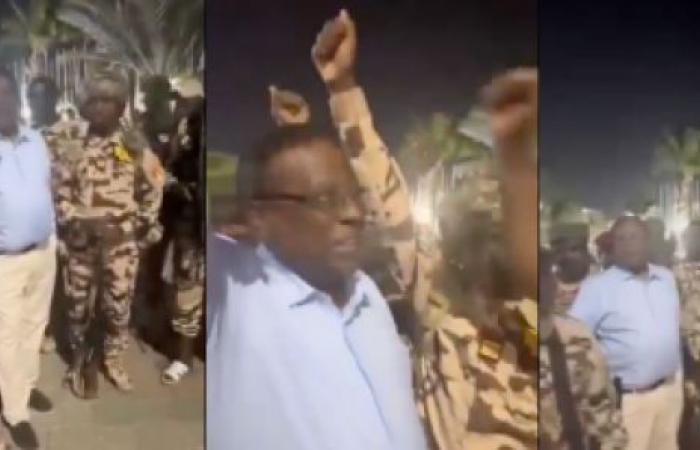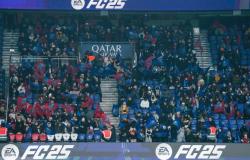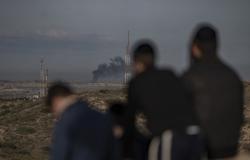A heavily armed commando attacked the Chadian presidential palace in the capital N’Djamena on Wednesday evening before being quickly overpowered by the presidential guard, according to the government and security sources.
“The situation is completely under control. (…) All this attempt at destabilization has been eradicated,” declared Chadian Minister of Foreign Affairs Abderaman Koulamallah in a video published in the evening on Facebook.
According to several security sources, the heavily armed commando entered the presidential palace, where it was quickly overpowered by the presidential guard.
The minister, who spoke with his gun in his belt and surrounded by soldiers from the presidential palace, did not give further details on the perpetrators and the nature of the attack, in his message broadcast live and intended to reassure the public. population.
No assessment of this attack, apparently launched shortly after 7:45 p.m. (6:45 p.m. GMT), was given by the authorities at this stage.
One of the security sources indicated that the attackers were part of the jihadist group Boko Haram, which Chadian security forces are fighting in the Lake Chad region (west), bordering Cameroon, Nigeria and Niger.
The attack took place a few hours after the visit to N’Djamena of the Chinese Minister of Foreign Affairs, Wang Yi, who had several meetings with Chadian leaders, including one at the presidency with the head of state Mahamat Idriss Déby Itno.
Heavy gunfire was heard for nearly an hour in neighborhoods near the presidency, before stopping around 8:50 p.m. (7:50 p.m. GMT), AFP journalists noted.
– Anti-jihadist operation –
All roads leading to the presidency were quickly closed to traffic. Tanks were deployed in the streets, including one in front of the central police station, and armed police stationed at street corners. In these neighborhoods in the center of the capital, people, visibly worried, rushed to get back on their cars or motorbikes to return home.
-Chad made a surprise announcement at the end of last November that it was ending the military agreement between Paris and N’Djamena, marking the end of sixty years of military cooperation since the end of French colonization.
According to President Déby, these agreements were “completely obsolete”, in the face of “the political and geostrategic realities of our time”.
Last May, three years of transition ended in N’Djamena, with the election of Mahamat Idriss Déby, brought to power by a military junta after the death of his father Idriss Déby, killed by rebels at the front in 2021.
Threatened by rebel offensives, Déby senior was able to count on the support of the French army to repel them in 2008 and then in 2019.
In recent weeks, the Chadian president has also threatened several times to leave the mixed multinational force (MMF) formed in 1994 with Cameroon, Niger and Nigeria to secure the Lake Chad region, denouncing the passivity of his allies.
The MMF initially began as a force primarily fighting cross-border crime, but its mandate was later broadened to include the fight against jihadists, whose armed campaigns have spread from their Nigerian base to the three neighboring countries.
At the end of October, a Boko Haram attack on a Chadian military base in the Lake Chad region left fifteen officers dead, according to the Chadian authorities.
In response, President Déby “personally” launched an operation called “Haskanite”, which he led from the Lake Chad province for two weeks in early November.






